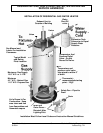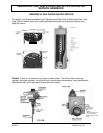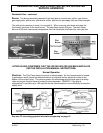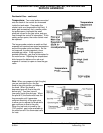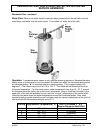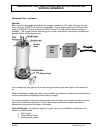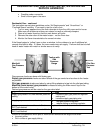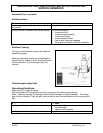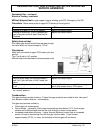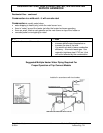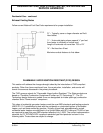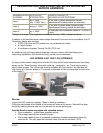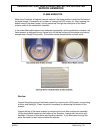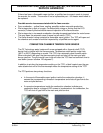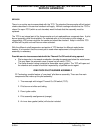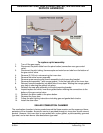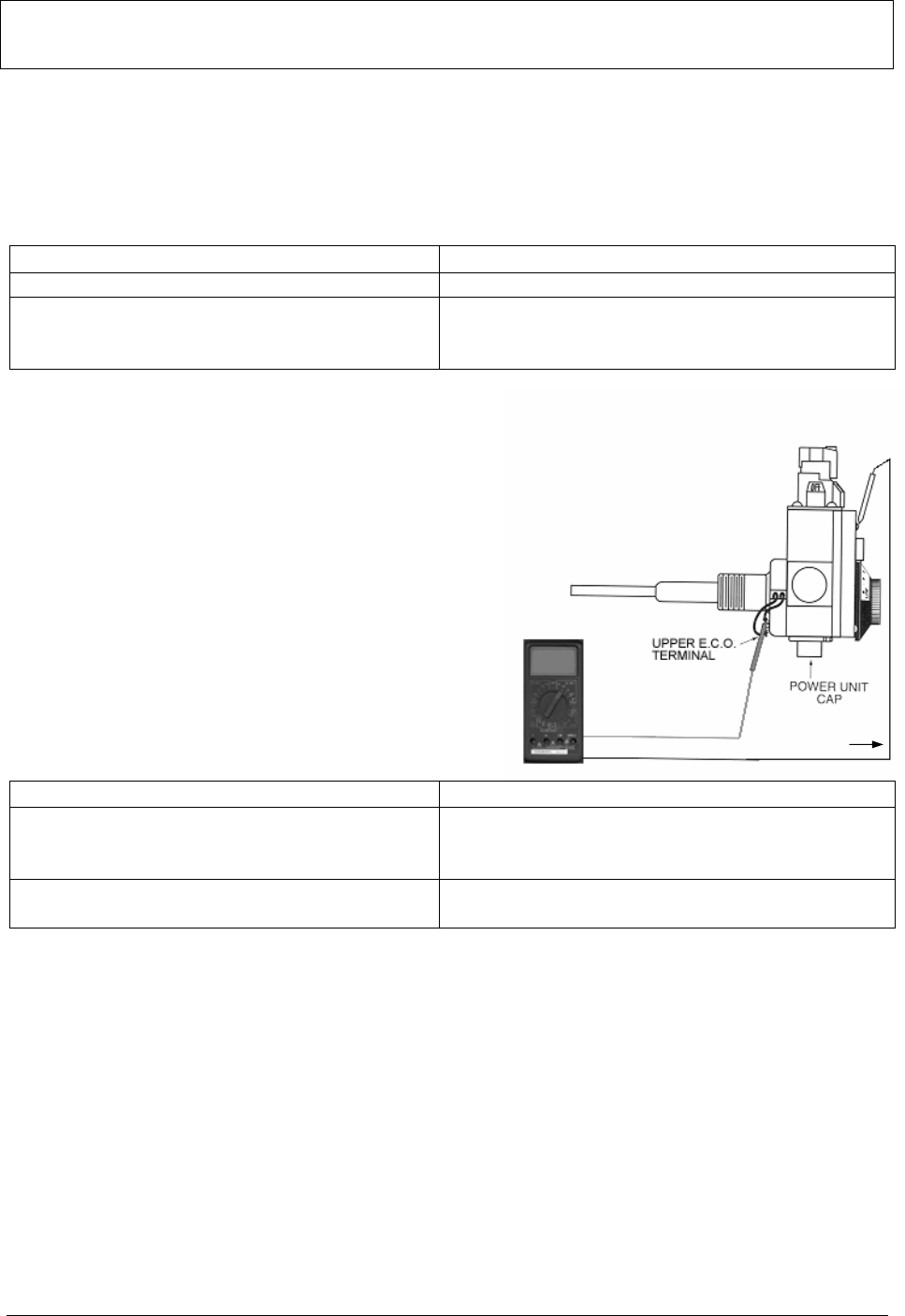
RESIDENTIAL GAS, NON POWER VENTED, WATER HEATER
SERVICE HANDBOOK
State Water Heater Technical Training Department
© 2004 Ashland city, TN
13
Residential Gas - continued
Electrical Testing– continued
Millivolt dropout test through copper magnet winding and ECO (Emergency Cut Off)
Procedure: Move meter probe to upper ECO solder joint and ground
If … … then
reading of at least 10 mV is not present replace the control valve.
reading of more than 10 mV is present but,
gas to the pilot shuts off each time knob is
released
replace the control valve.
Safety drop out test –
The safety gas shutoff should interrupt gas through
the valve when mV current drops to 1-3 mV.
Procedures:
Meter still connected to upper ECO solder joint and
ground.
Turn Top Knob to “off” position
Millivolt output will decrease as thermocouple cools
If… … then
internal safety does not activate between 1
and 3 mV (you will hear a “click” inside the
valve)
replace the control valve.
*internal safety does activate between 1 and
3 mV
valve is within tolerance and will interrupt gas
flow if pilot looses heat or ECO opens.
*Note: A “click” sound should be heard from the valve as the main gas interrupter snaps up to
the “closed” position.
Condensation
Flue gas products contain moisture. If these flue gas products are cooled to their “dew point”,
they become visible moisture – condensation.
Flue gas may become cooled by:
Cold supply air temperatures
Cool surfaces – generally, if tank water temperatures drop below 110F, the flue pipe
surface and/or bottom tank head will be cool enough to cause condensation.
Increased combustion efficiency – higher thermal efficiency means that an increased
amount of heat is transferring from the flue gas into the water. If you transfer
(approximately) 87.5%, or more, the moisture in the flue gas will condense.
TO GROUND



